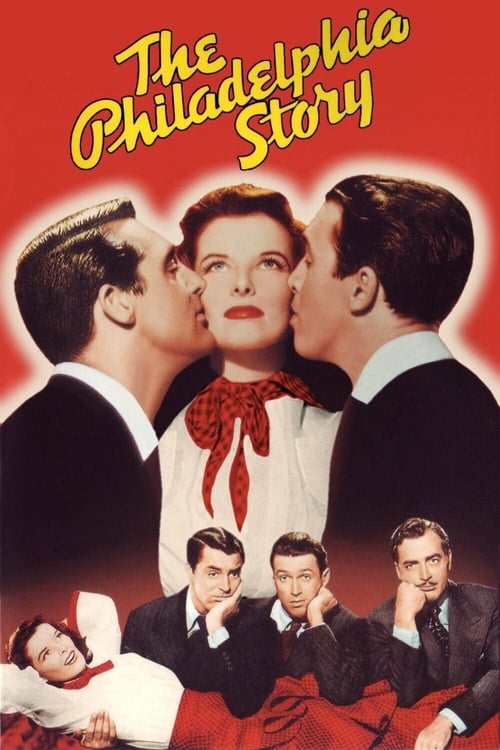
Title: The Philadelphia Story
Year: 1940
Director: George Cukor
Writer: Waldo Salt
Cast: Cary Grant (C.K. Dexter Haven),
Katharine Hepburn (Tracy Lord),
James Stewart (Macaulay 'Mike' Connor),
Ruth Hussey (Elizabeth 'Liz' Imbrie),
John Howard (George Kittredge),
Runtime: 113 min.
Synopsis: When a rich woman's ex-husband and a tabloid-type reporter turn up just before her planned remarriage, she begins to learn the truth about herself.
Rating: 7.634/10
A Sparkling Dance of Wit and Heart: The Philadelphia Story’s Timeless Brilliance
/10
Posted on July 20, 2025
George Cukor’s The Philadelphia Story (1940) is a radiant gem of classic Hollywood, a film that weaves sharp social commentary into a frothy romantic comedy with effortless grace. Adapted from Philip Barry’s play, Donald Ogden Stewart’s screenplay crackles with wit, its dialogue a symphony of repartee that captures the brittle veneer of high society while exposing its tender underbelly. The story centers on Tracy Lord (Katharine Hepburn), a patrician heiress whose impending remarriage to a self-made man, George Kittredge (John Howard), is upended by the arrival of her ex-husband, C.K. Dexter Haven (Cary Grant), and a tabloid journalist, Macaulay Connor (James Stewart). What unfolds is a nuanced exploration of class, identity, and human imperfection, elevated by three masterful performances.
Hepburn’s Tracy is the film’s heartbeat, a character both imperious and vulnerable, her icy demeanor melting as she grapples with her own flaws. Hepburn, often criticized early in her career for aloofness, channels that perception into a performance of stunning self-awareness, making Tracy’s transformation from goddess to human deeply affecting. Grant, with his sly charm, imbues Dexter with a wounded dignity that avoids caricature, while Stewart’s Connor, an everyman poet, brings a grounded warmth that earned him an Oscar. Their chemistry is electric, each actor playing off the others with the precision of a chamber ensemble.
Cukor’s direction is understated yet impeccable, allowing the actors’ rhythms to drive the narrative while using the camera to underscore emotional shifts. A standout scene, where Tracy and Connor share a moonlit moment of drunken honesty, is framed with an intimacy that feels almost voyeuristic, the soft lighting amplifying their fleeting connection. Joseph Ruttenberg’s cinematography, though not flashy, uses subtle compositions to mirror the characters’ emotional landscapes, particularly in the way shadows soften Tracy’s sharp edges as her defenses crumble.
The film’s flaws are minor but notable. The pacing occasionally sags in the second act, as the plot juggles its ensemble, and the supporting characters, like Tracy’s family, can feel underdeveloped, serving more as comedic foils than fully realized figures. Yet these quibbles fade against the film’s enduring strength: its ability to balance biting satire with genuine warmth. The Philadelphia Story doesn’t just entertain; it invites us to laugh at our pretensions while embracing our shared humanity, a feat that feels as fresh today as it did in 1940.
0
0
